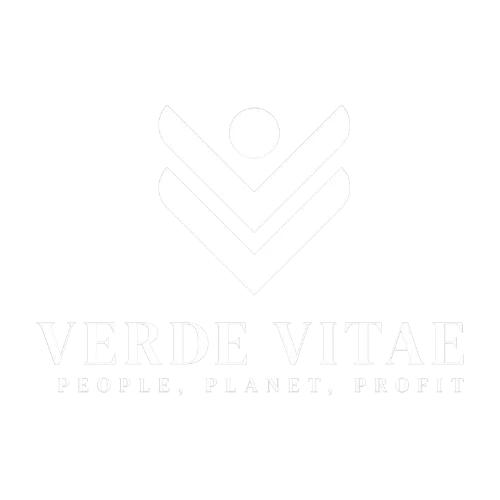Insights
Educate | Inspire | Motivate

Mastering Conflict Management: A Guide for Leaders
Do you dread the thought of handling conflict? If so, you're not alone. Many people find conflict to be uncomfortable and intimidating. However, as a leader, conflict management is a crucial skill that you need to develop. In fact, research shows that teams that manage conflict effectively are more productive and have higher morale.
In this article, we'll explore the Thomas Kilmann Conflict Management Model, which is a widely recognised framework for resolving conflict in a positive and effective manner. We'll also provide some tips for managing conflict and share some conflict management exercises that can help build team morale and improve team dynamics.
The Thomas Kilmann Conflict Management Model
The Thomas Kilmann Conflict Management Model is based on the idea that people tend to approach conflict in one of five ways, depending on their level of assertiveness and cooperation. Here are the five possible outcomes of a conflict situation:
Competition: This approach is high in assertiveness and low in cooperation. When using this approach, the goal is to win at all costs. This approach can be effective in situations where quick, decisive action is needed. However, it can also create resentment and damage relationships.
Collaboration: This approach is high in both assertiveness and cooperation. When using this approach, the goal is to find a solution that meets the needs of all parties. This approach can be time-consuming, but it can lead to creative solutions and stronger relationships.
Accommodation: This approach is low in assertiveness and high in cooperation. When using this approach, the goal is to meet the needs of the other party, even if it means sacrificing your own needs. This approach can be effective in maintaining harmony and avoiding conflict. However, it can also lead to resentment and feelings of being taken advantage of.
Avoidance: This approach is low in both assertiveness and cooperation. When using this approach, the goal is to avoid the conflict altogether. This approach can be effective in situations where the issue is not important or where more information is needed. However, it can also lead to unresolved issues and festering resentment.
Compromise: This approach is moderate in both assertiveness and cooperation. When using this approach, the goal is to find a solution that partially meets the needs of both parties. This approach can be effective in situations where time is limited or where both parties have equally important needs.
Tips for Managing Conflict
Here are some tips for managing conflict in a positive and effective manner:
Stay calm: It's important to remain calm and composed during a conflict. This will help you think clearly and communicate effectively.
Listen actively: Active listening involves fully focusing on the other person and trying to understand their perspective. This can help defuse emotions and lead to a more productive conversation.
Acknowledge feelings: Acknowledge the other person's feelings and validate their perspective. This can help build trust and create a more positive atmosphere.
Focus on the issue: Try to focus on the issue at hand, rather than getting bogged down in personal attacks or unrelated issues.
Look for common ground: Try to find areas of agreement and build on them. This can help create a more positive and collaborative atmosphere.
Conflict Management Exercises
Here are some conflict management exercises that can help build team morale and improve team dynamics:
Role-playing: This exercise involves acting out conflicts in a safe and controlled environment. This can help team members practice their conflict management skills and gain confidence in their ability to handle difficult situations.
Perspective-taking: This exercise involves looking at a conflict from the perspective of the other party. This can help team members develop empathy and understand the other person's needs and concerns.
Problem-solving: This exercise involves working together to find a solution to a conflict. This can help build teamwork and collaboration skills.
Active listening: This exercise involves practicing active listening skills. This can help team members communicate more effectively and build stronger relationships.
Applications of the Thomas Kilmann Conflict Management Model
The Thomas Kilmann Conflict Management Model (TKI) is a powerful tool for resolving conflict in a positive and effective manner. It is based on the idea that people tend to approach conflict in one of five ways, depending on their level of assertiveness and cooperation. Here are some of the applications of the TKI assessment:
Conflict management: The TKI assessment is an ideal tool for identifying different conflict-handling styles and learning how to choose the appropriate style for any situation. By understanding your own conflict-handling style and the styles of others, you can communicate more effectively and resolve conflicts in a way that meets the needs of all parties.
Team building: The TKI assessment can improve team functioning by helping members reconcile differences and work together more effectively. When team members understand each other's conflict-handling styles, they can communicate more effectively and avoid misunderstandings and miscommunications.
Leadership development: The TKI assessment can enhance leaders’ conflict management skills by helping them understand their own conflict-handling style and the styles of their team members. This can lead to more effective communication, better decision-making, and improved team performance.
Performance improvement: The TKI assessment can help eliminate barriers to effective performance by identifying and addressing conflicts that are hindering productivity. By resolving conflicts in a positive and effective manner, teams can work together more efficiently and achieve better results.
Stress reduction: The TKI assessment can give employees the capacity and tools to identify and manage workplace stress. By understanding their own conflict-handling style and the styles of others, employees can communicate more effectively, reduce misunderstandings, and reduce stress levels.
Retention: The TKI assessment can help employees be successful, improve morale, and stay engaged in order to build a stronger organisation and retain the best talent. When employees feel valued and heard, they are more likely to be engaged and committed to the organisation. By resolving conflicts in a positive and effective manner, organisations can create a more positive and productive work environment.
The TKI assessment is a versatile tool that can be used in a wide range of applications. By understanding your own conflict-handling style and the styles of others, you can communicate more effectively, resolve conflicts in a positive and effective manner, and create a more productive and positive work environment.
Conflict management is a crucial skill for leaders. By using the Thomas Kilmann Conflict Management Model and practicing conflict management exercises, you can build a healthier, happier, and more productive workplace. Remember to stay calm, listen actively, acknowledge feelings, focus on the issue, and look for common ground. With these skills, you can turn conflict into an opportunity for growth and development.
Ready to elevate your teams and propel your company to new heights? Schedule your consultation call with Verde Vitae today and discover how our bespoke mentoring and coaching programmes can transform your organisation.
If you liked this article you may also like these articles:
Cultivating a Culture of Health in the Workplace: Strategies and Tools for Success
Mastering Productivity with the Law of 3: Your Daily Guide to Focused Success
What Our Customers Say
James Holmes

Partnering with Verde Vitae has been a game-changer for our organisation. Their holistic approach to wellness has not only improved our team's overall health but also boosted productivity and creativity. The mindfulness and stress management programmes have been particularly transformative, leading to a more harmonious and efficient workplace. We're seeing tangible results in employee satisfaction and performance.
Sarah Lowe

Implementing Verde Vitae's wellness programmes was one of the best decisions we've made. The nutritional guidance and fitness initiatives have been a hit with our staff, leading to a noticeable improvement in energy levels and morale. What sets Verde Vitae apart is their commitment to tailoring their services to our specific needs, ensuring that each programme resonates with our team. Their impact on our workplace culture has been profound and positive.
Michael Downes

Verde Vitae's training programmes have revolutionised our approach to employee development. Their workshops on personal and professional growth have not only enhanced our team's well-being but also sharpened their professional skills. The brand ambassadorship training, in particular, has been pivotal in aligning our staff with our core values, significantly improving our communication and team cohesion. Verde Vitae's comprehensive approach is both innovative and deeply impactful.

Cultivating a High-Performing Workplace Culture
Maximise Profits through Employee Wellness Investments
© 2024 Verde Vitae - All Rights Reserved,
Website built and developed by Mexital Consulting
